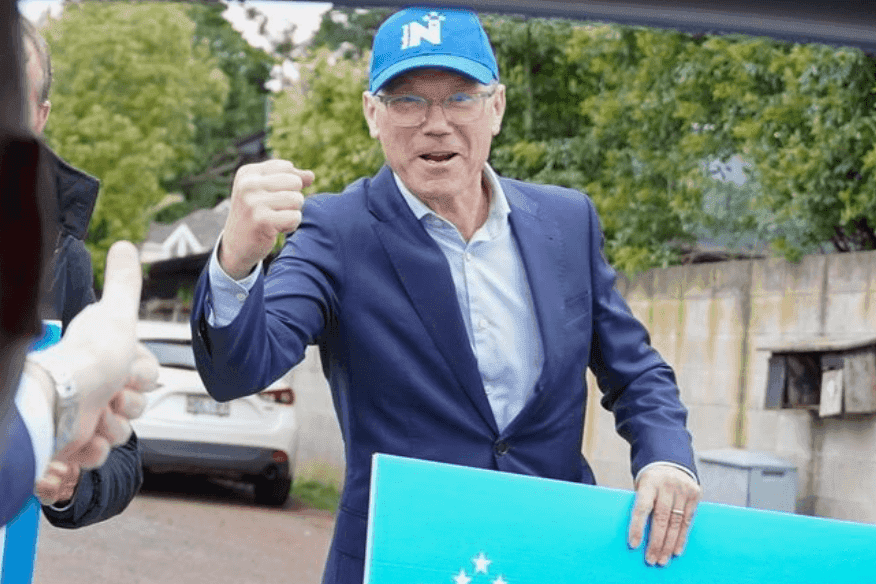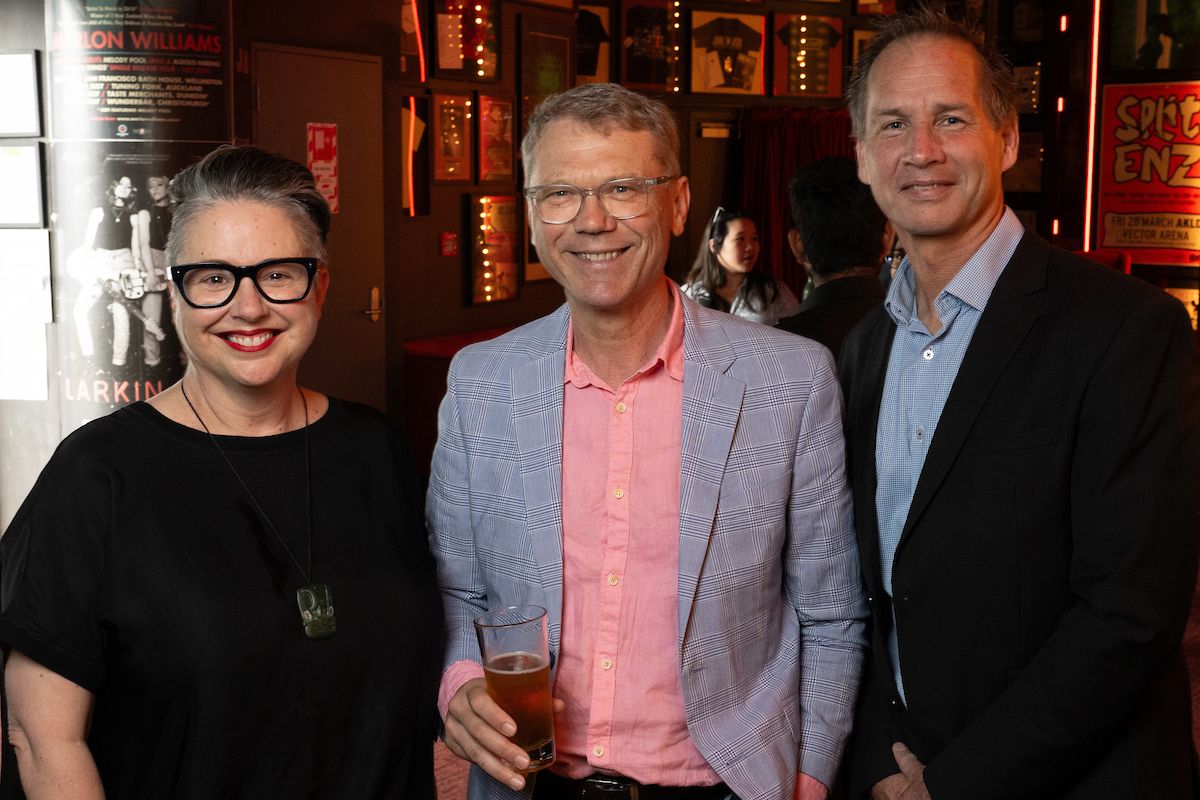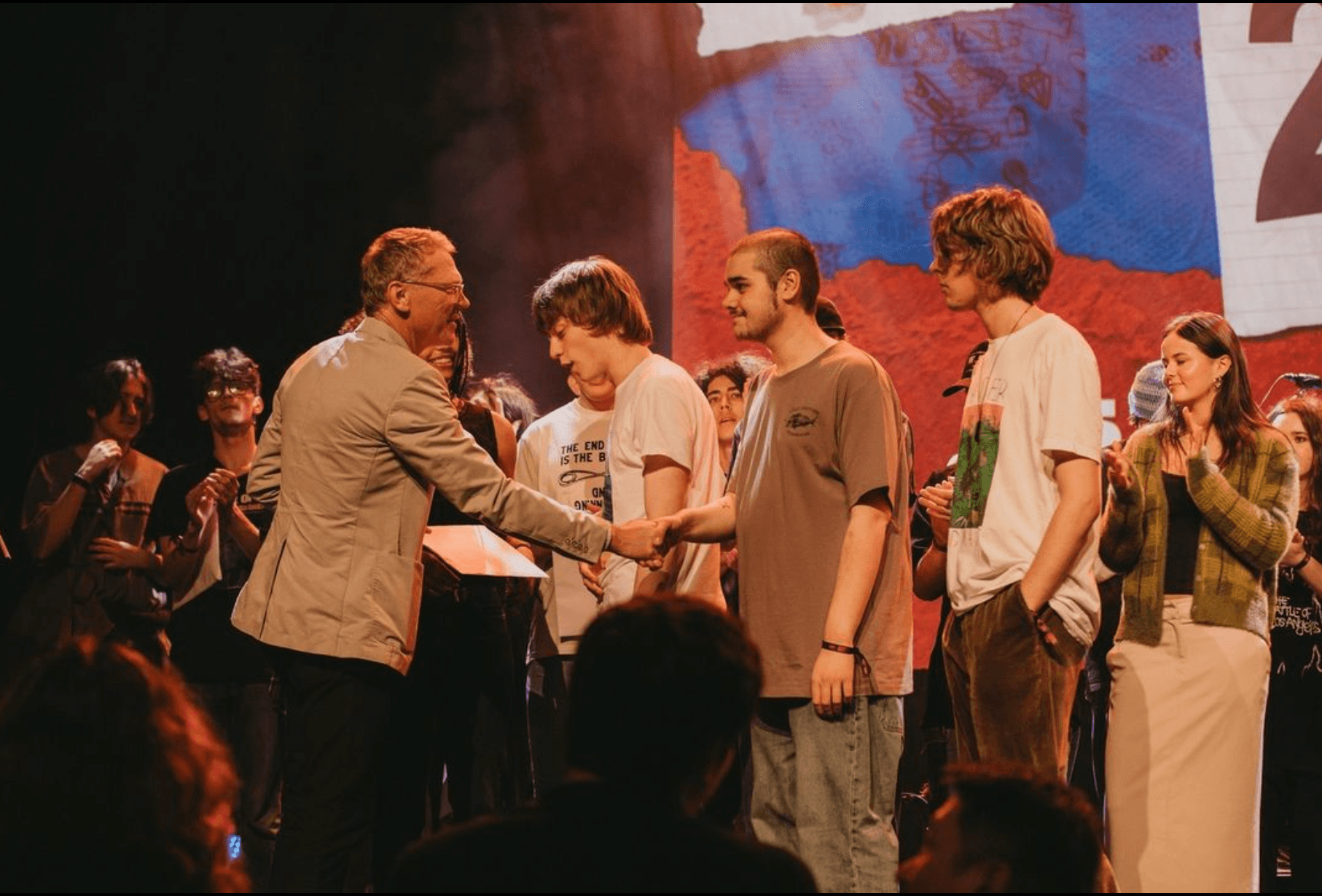Paul Goldsmith's Road To Arts, Culture & Heritage Minister
The five-term politician has been handed the keys to the creative community - but who is Paul Goldsmith and what's his connection to the arts?
Written by

It's taken an eternity to come together - but finally, we will have a fully formed Government.
And while all the attention was laid on the time-share Deputy Prime Ministers decision and who jagged positions inside/outside of cabinet - a key announcement for the creative sector was made with little fanfare.
Although a wide range of contenders from all three governing parties were pondered within the creative community, the final answer is that Paul Goldsmith is New Zealand's 14th Minister for Arts, Culture and Heritage. No Associate Ministers have been announced at the time of publication.
Goldsmith has been in Parliament since 2011 - flying under the radar compared to some of his other long-time colleagues despite entering his fifth term as a National MP, this time with four portfolios under his stewardship.
He's the most experienced Parliamentarian to be handed the Arts, Culture and Heritage portfolio since Helen Clark held the role from 1999-2008. And for the next three years, Goldsmith will make calls that will impact the creative community, as the Minister responsible for Manatū Taonga Ministry of Culture and Heritage (MCH).
So who is Paul Goldsmith, and what do we know about him?
Political career
Married with four children, Goldsmith's political career has seen him stand in the ACT party-dominated Epsom electorate, one that has often come with understandings of support with National's natural coalition partner.
ACT has laid uninterrupted claim to the seat since 2005. That means Goldsmith has entered Parliament as a list MP on five occasions.
Since then, he's been quietly going about his business, building up a strong reputation within his party and picking up experience in a range of portfolios.
During National's last two terms in Government, he's been Minister of Commerce and Consumer Affairs, Regulatory Reform, Science and Innovation, and Tertiary Education, Skills and Employment. He was also an Associate Minister for ACC, and has been the spokesperson for many portfolios in his last six years in opposition.
Prior to getting into Parliament, Goldsmith tested the waters in local government as an Auckland City Councillor and has worked for the Waitangi Tribunal, having completed a Masters in History at the University of Auckland.
What's his connection to arts and culture?
The arts didn't exactly feature Goldsmith's 2023 election campaign - nor did it for many in his party. Simon O'Connor was National's spokesperson for Arts and Culture but had little to say, with no discernable Arts and Culture policy to speak of. When O'Connor failed to make it back into Parliament, the portfolio was wide open.
Goldsmith was National's Arts, Culture and Heritage Spokesperson for a brief four months during 2017-2018 and Associate Spokesperson for the year following that.
It's interesting to note that Goldsmith has been present in the creative community since the election result came in last month, including being seen with some heavy hitters of the music industry at a New Zealand On Air event.

He's also carved an impressive CV as a biographer and historian, with ten books to his name. The subjects are based around the business world and those whose political leanings align with his, including the biographies of Don Brash and John Banks.
There is a connection to culture in one of his biographical subjects - with businessman Alan Gibbs also one of the country's best-known art collectors, founder and namesake of popular sculpture site, Gibbs Farm.
Goldmsith's own bio states he has a "broad interest in the arts" and is "an enthusiastic pianist" as the below video shows.
And just to defy the stereotype of historians and pianists - Goldsmith is also a Tae Kwon Do black belt and has been known to play on the right wing for the Parliamentary Rugby team.
What else does he have on his plate?

As well as being the Minister of Arts, Culture and Heritage, Goldsmith is also now the Minister of Justice, Minister for State Owned Enterprises and Minister for Treaty of Waitangi Negotiations.
Given National's strong stance on crime in the lead-up to the election, it's fair to say Justice will be a potentially time-consuming portfolio - and National MPs involved with Te Tiriti negotiations are usually kept pretty busy.
One of the criticisms from within the creative community of the last two Ministers for Arts, Culture and Heritage - Carmel Sepuloni and Jacinda Ardern - was that they had too much else demanding their attention ahead of the creative portfolio. Early signs are that it may be a stigma Goldsmith will need to prove himself against.
Goldsmith is ranked seventh in National's Cabinet, so will be involved in many high-level meetings and conversations. He will bring experience as both a Minister and someone who knows the in-and-outs of Parliament, which technically gives him a strong position to push the creative sector's case.
What is the Government's arts policy?
Great question - still don't know.
But given the depth of negotiations between National, ACT and New Zealand First over everything from seating arrangements to portfolio sharing, you'd hope there'd be answers soon.
As covered here on The Big Idea plenty of times in the lead-up to the election - and the prolonged prelude to Friday's announcement - ACT had the strongest stance on the creative sector of the three parties. It will be interesting to see if there is any spillover into what Goldsmith and National's stance will be, given it was largely a blank slate to begin with.
No Associate Ministers from ACT or New Zealand First named (as yet) could suggest National may be able to make their own minds up on this portfolio.
As a National Minister for Arts, Culture and Heritage, many will hold Chris Finlayson (2008-2014) as the measuring stick for Goldsmith to aim up against. The previous Nat to hold the role, Maggie Barry (2014-2017), did not leave many in the creative community particularly enamoured.
He won't be the only Minister who influences the creative sector, with Melissa Lee sure to be crucial as Minister for Media and Communications.